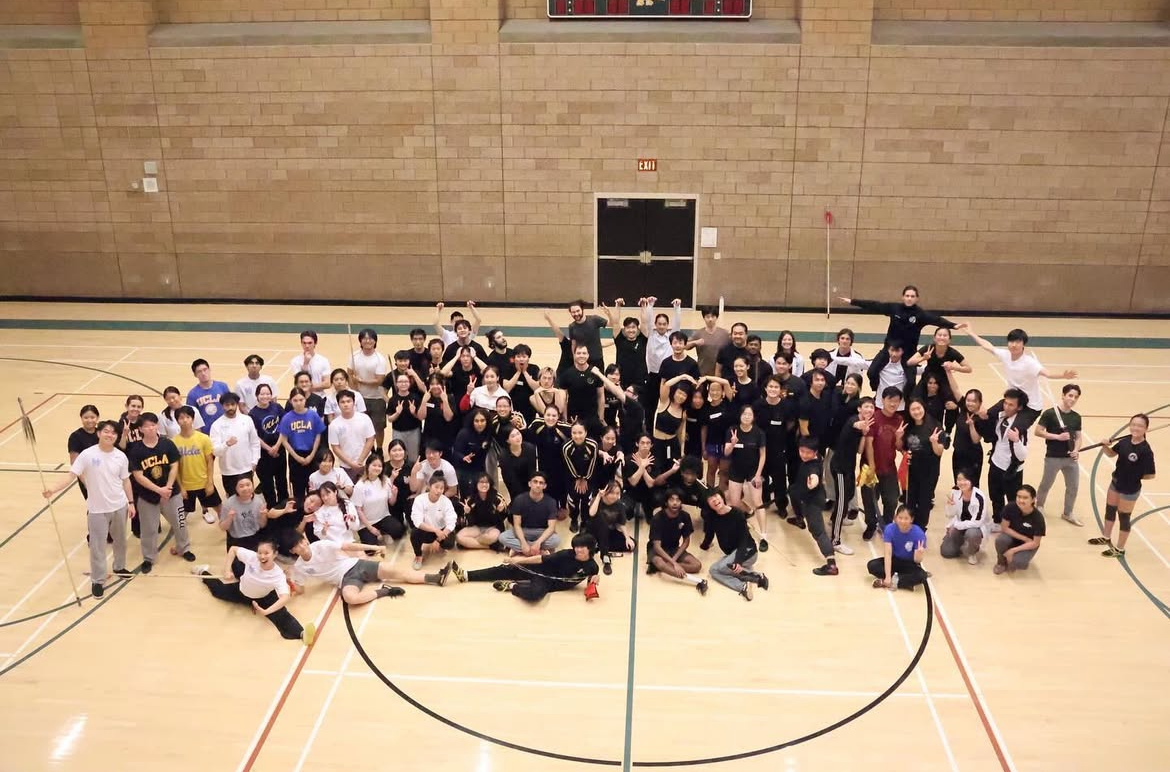
Courtesy of Wushu at UCI
Fighting for Recognition: Wushu
By Eric Yeh
You might have seen wushu before in fight scenes on the big screen, where practitioners like Jet Li and Donnie Yen have made it famous. But what exactly is wushu? Many outside of China call it kung fu, a collection of Chinese martial arts. In the past few years, wushu’s popularity has grown to include the collegiate level, The World Games, and most recently, its acceptance into the 2026 Youth Olympic Games.
Despite the sport achieving new milestones, some feel that it lacks the status that other sports have. “I feel like the Olympics will help codify kung fu as an actual sport and not just some screen artsy cool thing,” Amy Pang, 2022-2024 USC Kung Fu president, shared. “That will definitely help introduce more people to the sport and I do feel that Collegiates will become a stepping stone.”
Amid the sport’s search for Olympic inclusion, many college wushu clubs are struggling to be these potential stepping stones, set back by the lingering effects of COVID-19.
“It was so hard, it’s still not fully revived,” Rainbow Huang said about reestablishing Harvard Wushu’s club after the pandemic. “We’re still kind of struggling, to be honest.”
These obstacles that college clubs face in rebuilding mirror the larger fight to increase wushu’s global recognition through Olympic participation. Though the International Wushu Federation (IWUF) has made bids since 2001, the sport is still not in the Olympics. Many practitioners have their own theories as to why.
Olympic Barriers: Practitioner Perspectives
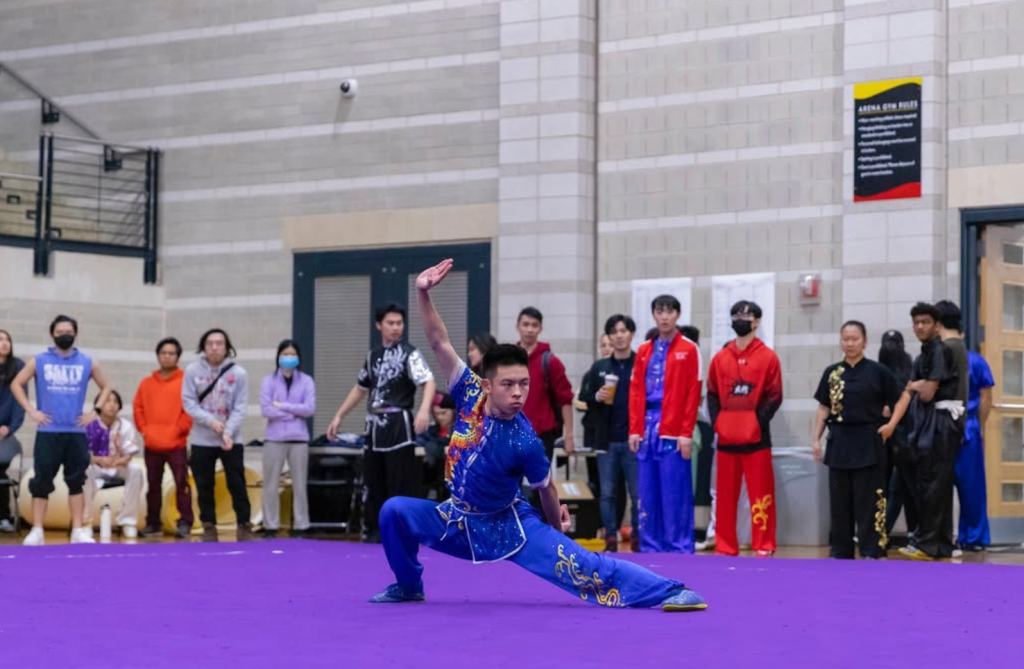
2024-2025 TerpWushu president
(Courtesy of Bryan Gao)
“The perception of wushu as a whole. I think over the years, the rep on wushu hasn’t been the greatest. Most people when I talk to about wushu are like, oh but it’s not fighting though, you can’t do it with fighting, like it’s martial arts but also just a show,” Bryan Gao, 2024-2025 TerpWushu president, said.
Pang elaborates on this point of people not understanding the sport of wushu. “There’s not enough kung fu practitioners and coaches who are located in the West who can talk about the sport and share it beyond just coaching kids to get good.”
Others believe the obstacle is less about misconception, but a deeper issue: corruption.

2022-2024 USC Kung Fu president
(Photo by Eric Yeh)
“I would be lying if I’m saying every competition is not rigged. Especially the international ones, home court does have the advantage, and you can see it.”
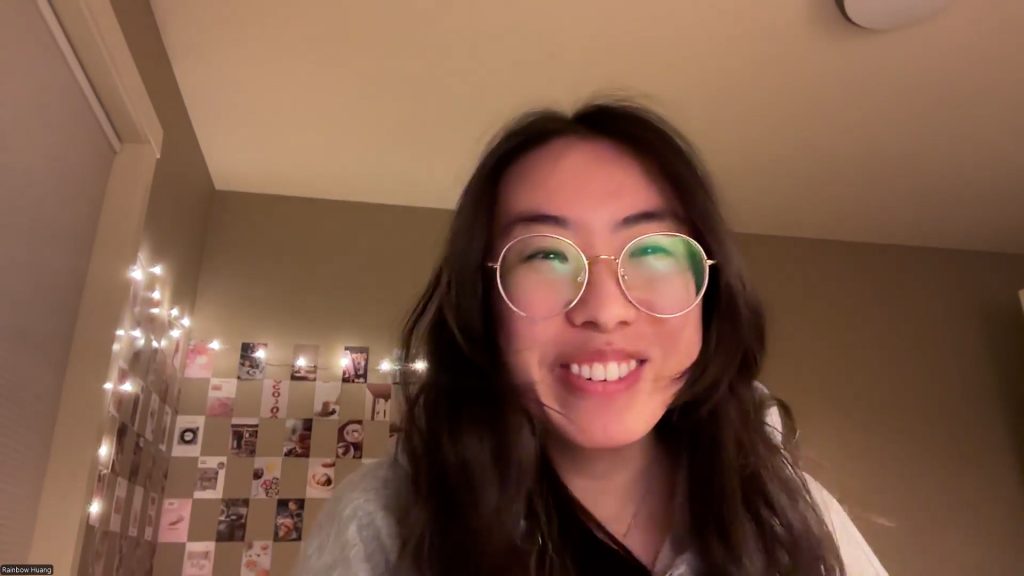
Northeastern student with Harvard Wushu
2019, 2022, 2023 USA National Kung Fu Team
(Photo by Eric Yeh)
“China wins all the time, that’s great, maybe they have merit. But then, even amongst the other teams Asian teams, at some point, it’s not a skill base. It’s how hard your coach fights for you and convinces the judges that your team should win a medal.”
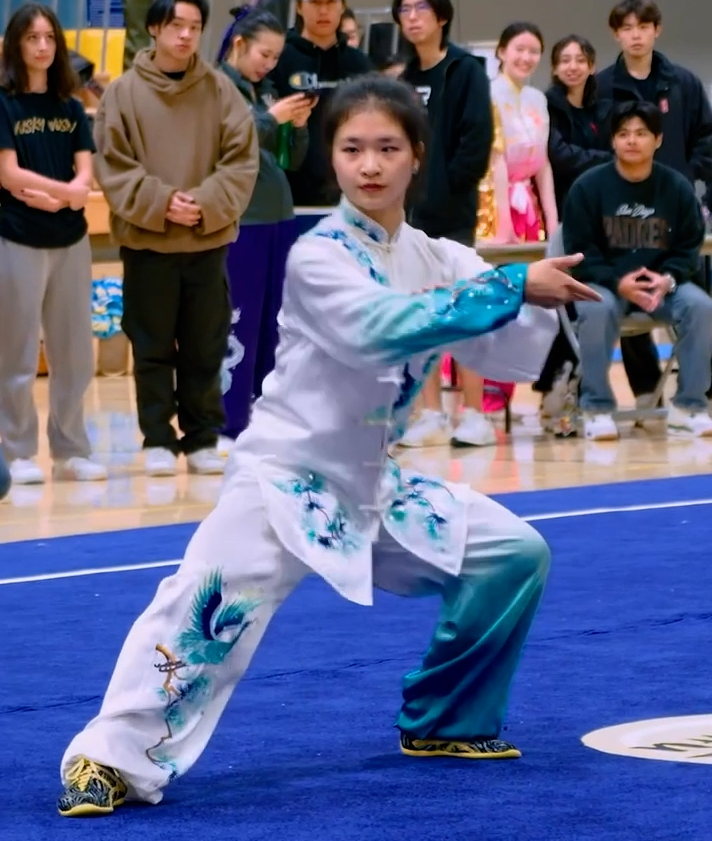
2024-2025 Stanford Wushu president
2018, 2019, 2022, 2023, 2024 USA National Kung Fu Team
(Courtesy of Judy Liu)
“Before you even step on stage, they already have their lineup of who’s going to be first, second, and third.”
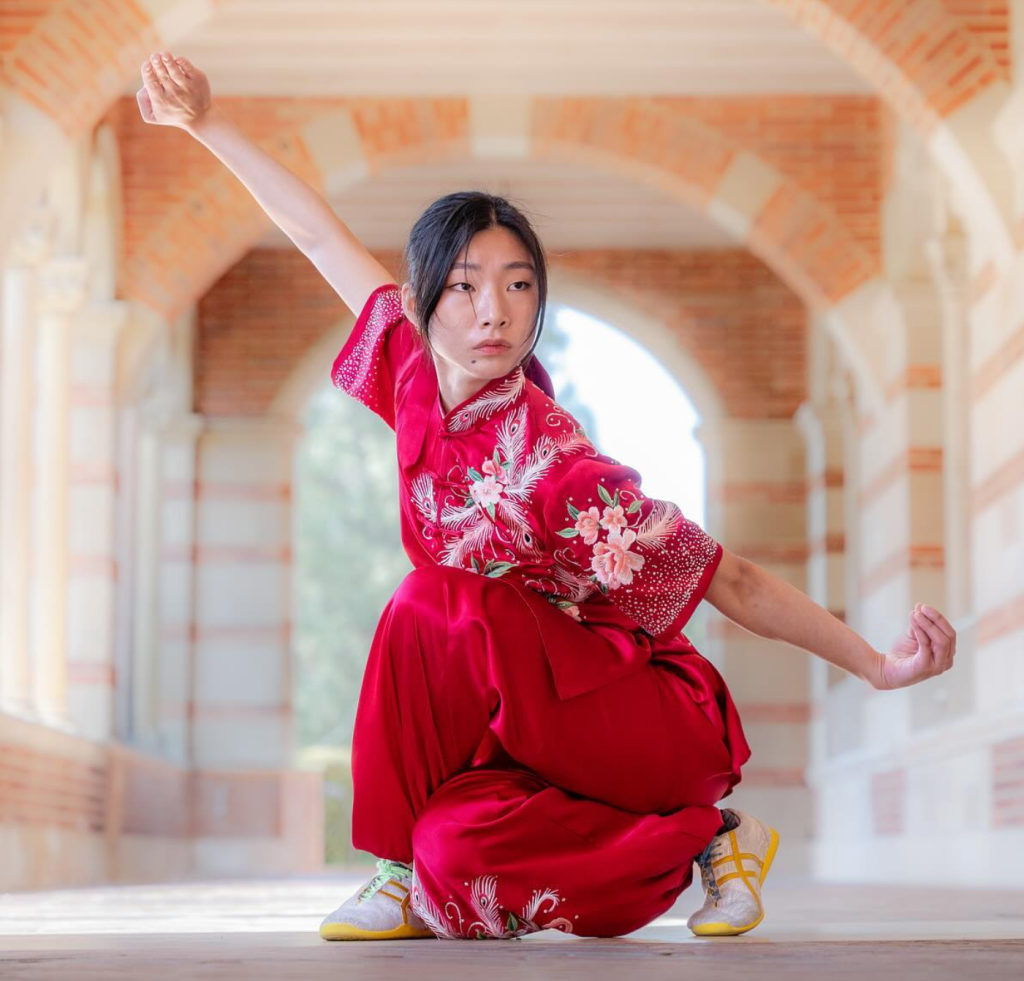
2023-2024 UCLA Wushu President
720 Martial Arts Academy Coach
(Courtesy of Natalie Sun)
While many athletes raise concerns about corruption, organizations connected to the sport have deflected or distanced themselves from these accusations.
Anna Jacobson, The World Games Communication and Media Director, said, “There has been no incidents nor controversies regarding Wushu’s participation at The World Games.”
The United States of America Wushu Kung Fu Federation (USAWKF), Chinese Wushu Association and IWUF declined to comment on these matters.
However, others within the international wushu community acknowledge the concerns that exist. “While Wushu has grown globally, challenges remain related to perceptions of regional dominance and judging transparency—issues that the IWUF continues to work on improving,” Alejandro Guerra, International University Sports Federation (FISU) Head of Championships & World Cups, said. Still, he added, “There have been no significant concerns reported regarding biased judging at FISU Wushu events.”
Beyond questions of perception and corruption, some think wushu isn’t internationally widespread enough to meet the Olympic standard.
“You have a lot of good athletes from non-Asian countries, but they will not do well on the global stage because Asian countries are so much more experienced in training people. And overall, if you look at the ranking of the top eight in the World Championships, it’s always going to be Asian countries,” Kaika Kusuma, 2022-2023 USA National Kung Fu Team member, said.
Former USAWKF member and IWUF judge Anthony Sims shares this point of view. “One big issue probably relates to whether there is a true international regulatory governance structure or if China is the de facto governance structure which is a problem if the sport is supposed to be truly international.”
Yet others say efforts to improve wushu’s global recognition exist, but it just might not be genuine.
“You’ll have a China athlete registered for [three events], but 99% of the time, they’ll go to their first one, get a gold medal, and then they won’t show up to the other two events because they already got their gold medal,” William Vo, 2022-2023 UCLA Wushu president, said. “It’s like, you’re giving those two gold medals to other teams, other countries, and then you’re showing that to the Olympic Committee, and being like, look at all these other countries that are winning gold, you know.”
Vo’s claim may sound speculative, but it may have some merit.
Journey to Olympics
While Chinese athletes dropping out of events to increase wushu’s international footprint by letting other countries win is unconfirmed, the IWUF has been taking legitimate steps toward global recognition. One way they are doing this is by joining The World Games and FISU.
The World Games is a global multi-sport event that features sports not in the Olympics. In order to be considered for inclusion, a sport’s international federation must first become a member of the International World Games Association (IWGA) by receiving votes from at least two-thirds of the current members, and the sport cannot be part of the Olympics. Wushu first appeared in The World Games as an invitational sport in 2009 and 2013. In 2021, the IWUF applied to become a member of the IWGA and was accepted. In 2022, wushu became an event at The World Games.
According to Jacobson, The World Games included wushu because it coincides with the organization’s goal to showcase non-Olympic sports. She said, “Wushu’s rich cultural heritage and unique characteristics align with this objective.”
FISU is a global organization for university sports that provides opportunities for student-athletes to compete internationally. To be recognized, the sport’s international federation must prove the sport has global reach, university-level competitions and endorsements from FISU member associations and national sport federations. The IWUF applied and was recognized by FISU in 2014 and made its debut in the Summer Universiade in Taipei in 2017.
According to Guerra, FISU included wushu because of its cultural value, growing international appeal and active participation within universities around the world: “The sport aligns with FISU’s values of diversity, educational development, and youth engagement.”
While wushu’s inclusion in The World Games and FISU help the sport’s international footprint, the IWUF still aims to become an Olympic sport, an initiative which has been in the works since 2001.
COVID-19 Impact on Collegiate Wushu
While wushu continues to push for Olympic recognition, its journey is mirrored by student-run college clubs still rebuilding from the disruption of the COVID-19 pandemic. However, not every club was affected the same way.
“It didn’t feel so much like a rebuild.”
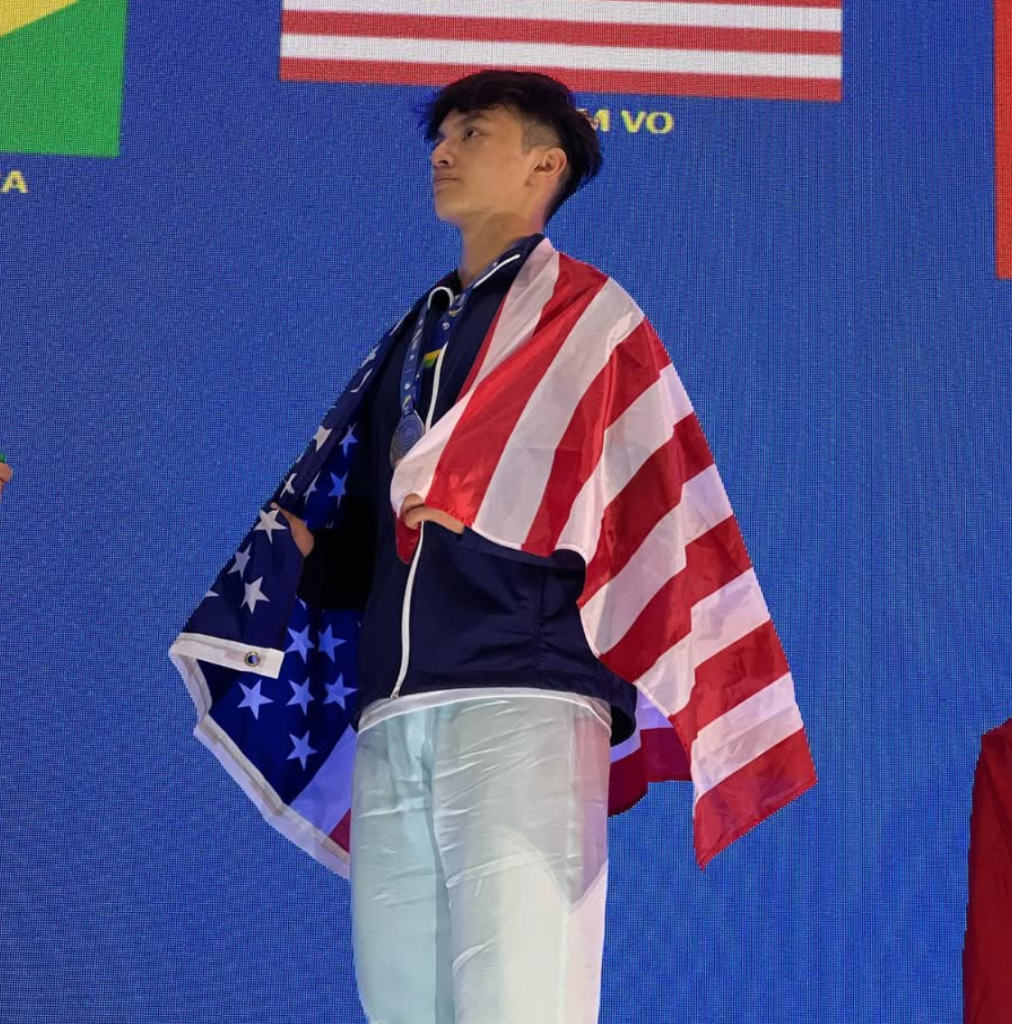
2022 – 2023 UCLA Wushu President
(Courtesy William Vo)
“There used to be a lot of people in the club, but then COVID happened. It’s not just the UC Davis wushu club that didn’t continue.”

2024-2025 Davis Wushu President
(Courtesy Crystal Chang)
“The club almost died for sure.”
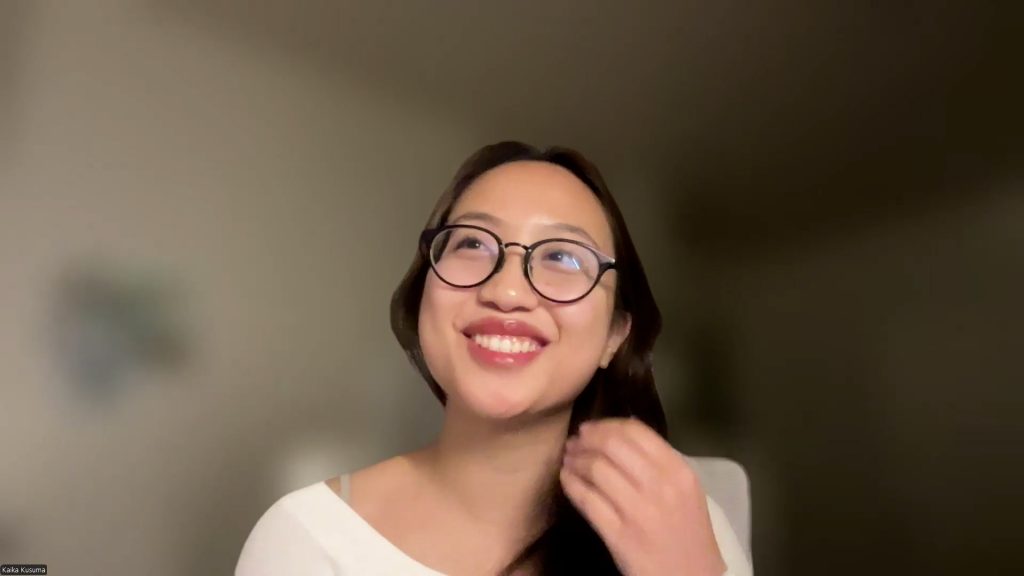
2024-2024 Cal Wushu President
(Photo by Eric Yeh)
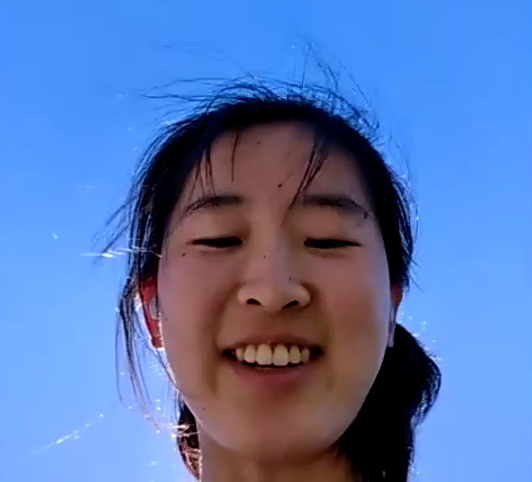
2024-2025 UCSD Wushu president
(Photo by Eric Yeh)
Chang would be right. UC Davis isn’t the only club that had to start from scratch. “Stanford Wushu existed before I came here, but that was before COVID. It was a very huge flourishing team,” Liu said, “and then after COVID, there was no wushu.”
Chang and Liu took on the initiative to restart their respective university’s clubs. When Chang joined her freshman year, her senior friend gave her the president role. With few members, she stepped into the role to rebuild the club by advertising and performing at more events.
Liu initially didn’t mind Stanford lacking a wushu club, as she was unsure if she wanted to continue practicing the sport. But once she decided to compete again, she didn’t know where to practice on campus. So, she frequently traveled back to her studio or would wake at 6 a.m. to go to Stanford’s dance rooms to practice.
“At like six, seven a.m., there’s nobody downstairs who can peek into the dance room. But when I was practicing, I was also not very focused, because I was so worried that somebody would see me doing this weird art form in a dance room. That’s something that I struggle with. I would call that no community,” Liu said. This feeling of loneliness drove her to reestablish a wushu club at Stanford.
While these two university wushu clubs have had to rebuild from the ground up, others were still hit but more fortunate.
During COVID, Cal Wushu had limited access to practice spaces, low engagement from members, and difficulty recruiting newcomers, all of which impacted their ability to succeed. To survive, the club attempted what many schools did and moved practices online.
“Each practice had 10 people tops, including instructors. A few joined over Zoom and continued once we resumed normal practices,” Angeline Yang, 2024-2025 Cal Wushu social chair, said.
The University of Maryland suffered a similar fate.
“Before [COVID], we had a thriving club with usually 20 members. Nowadays, we struggle to even reach 10,” Gao said.
To get their numbers back up, both universities turned to doing more performances. “Doing performances for the general community kind of put us out there more and attracted more members that are more interested in not being a spectator and becoming a member,” Gao said.
Their efforts have paid off. “I feel like this year, or this academic year, is the first year that we really feel like as a club we fully recovered from COVID,” Kusuma said.
And then there are some schools lucky enough to get through COVID relatively unscathed.
Vo attributes the clubs surviving to experienced members who started freshman year before the pandemic and returned as seniors. “You still have the core group of people that have been there from the beginning, that have been doing wushu for a long time, [who] kind of understand how to build up a program again,” Vo said.
2024-2025 UCSD Wushu president Zhoujie Yu, echoes what Vo said. “When I was a freshman, the other people who are also entering the club were not only just freshmen, but also second years because of COVID; during that year, we had a lot of new people joining the club,” Yu said. “So, after [the eboard] graduated, there was, enough newcomers my freshman year, we were able to keep the club up and running.”
The level of support from their universities plays a role in determining their success.
Gao shares this sentiment, emphasizing how TerpWushu’s good relationship with the university makes booking practice spaces easy. “There haven’t been issues about we’re not going to grant this to you because of this or that. It is usually [for] pretty valid reasons,” Gao said. “It’s not like, they’re not giving this to [us] strictly because [we’re] wushu, they’re supportive.”
Kusuma even explained how Berkeley has a martial arts program that provides a dedicated space within their recreational facility.
However, universities throughout the nation appear to be missing one thing: funding.
Even clubs who seem to have a good relationship with the university suffer from money issues. UMD and UC Berkeley’s wushu clubs both raise money on their own through football concessions and performances, respectively.
“Our club runs pretty independently of the university. We used to be more involved when we’re part of rec, like the classes are run through the school as part of the recreation program. We aren’t part of that anymore because of funding and paperwork,” Yu said, “being a part of rec didn’t give us access to any extra funding.”
Cornell Wushu works in a similar fashion. “We had an advisor, but we didn’t really interact with them much. I think the only times we ever talked to our advisor was once a year to get confirmed that the club is happening,” Devin Chin, 2021-2022 Cornell Wushu president, said.
Then you have the wushu clubs who have not found success with either university help or being independent.
“I feel like the school doesn’t really provide that much help for money for registered student organizations, but they do provide a lot of opportunity for exposure,” Chang said.
2024-2025 Dark Phoenix Wushu Team student coach Veronica Thai shares this frustration. “Competitive tiers get the most support and funding, instructional less so. So stuff like we don’t get our club competition fees compensated,” Thai said, “[it is] kind of annoying to see that we’re getting nothing.”
The possibility of wushu being included in the Olympics holds particular significance for Thai; advancement within Ohio State’s recreation sports club system is strongly tied to a sport’s Olympic status or NCAA recognition.
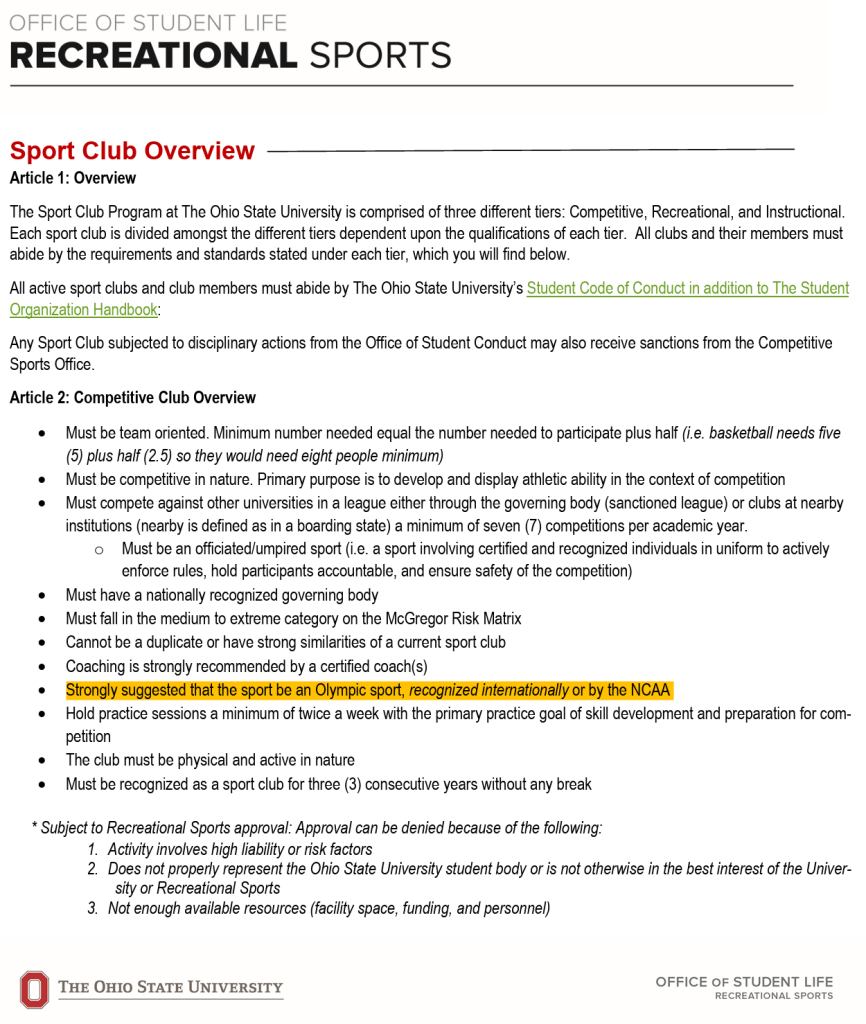
Building Communities
If wushu ever earns its place in the Olympics, today’s college athletes will likely be the ones representing it. The Youth Olympic Games are only for ages 15-18; when these wushu athletes go to college after aging out, collegiate clubs are often the only structured training ground left for student practitioners. But beyond being a stepping stone for the Olympics, these university clubs have given their members the opportunity to form strong connections with each other.
The experiences shared by students at schools like UC Davis, UC Berkeley, and UCLA illustrate how wushu clubs have not only survived but have created communities on campus. The resilience of these clubs gives rise to the hope that the next generation of wushu athletes will still have a place to belong while they study – and perhaps, in the near future, a place on the Olympic stage, too.